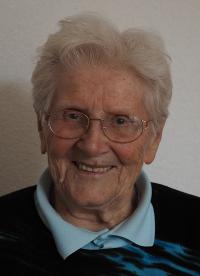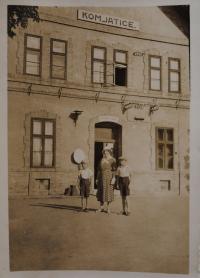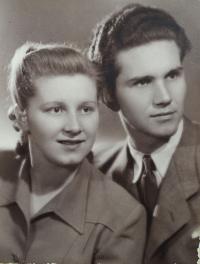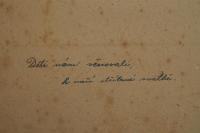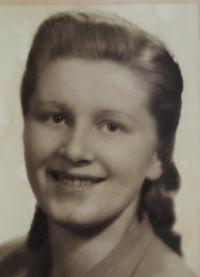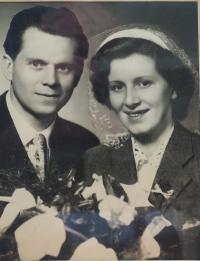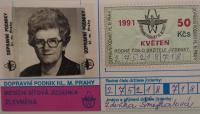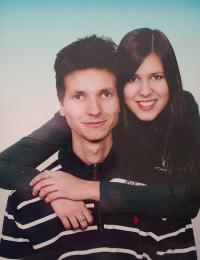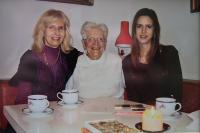The amazing solidarity amongst people under a constant threat of death was the strongest experience of my life

Download image
Zdena Šmejkalová, née Hošková, was born on February 18, 1927 in Orlov in Slovakia. Her father was a Russian legionary, who returned on ship via Vladivostok. As a construction technical college graduate he worked as a railway builder. Due to children’s´ education the family moved to Velký Žitný island in a village of Komjatice. In 1939, when the Southern part of Slovakia was occupied by Hungary, the family had to quickly move to Ivanka near Nitra. But soon enough the father managed to get a job at the Czech railway in Ždírec nad Doubravou. In the surrounding forests were hiding not only forced labour refugees, but also guerrillas. All of them were receiving help from the father and other patriots. In 1943 Zdena went to forced labour in Nové Ransko steelworks, where weapons were made during war. A year later the family was under the threat of death as the gestapo arrested a friend and a co-figher in resistance, a senior policeman Holík. Due to severe interrogation he died without giving any information out. After war the father got a job of a railway master in Světlá nad Sázavou. Zdena decided to finish her secondary school studies in Skuteč. In 1947 she had to fulfil an obligatory agricultural brigade and spent three months at a farm in Světlá nad Sázavou. Then she changed several jobs in Prague, Karlovy Vary and Poděbrady. In 1950 she entered the socialistic unions and during a meeting she met Ladislav Šmejkal, whom she later married. Today she lives in Neratovice.
